
Brian's Run Pod
Welcome to Brian's Run Pod, the podcast where we lace up our running shoes and explore the exhilarating world of running. Whether you're a seasoned marathoner, a casual jogger, or just thinking about taking your first stride, this podcast is your ultimate companion on your running journey.
Join us as we dive deep into the sport of running, covering everything from training tips and race strategies to personal stories and inspiring interviews with runners from all walks of life. Whether you're looking to improve your race times, stay motivated, or simply enjoy the therapeutic rhythm of running, Brian's Run Pod has something for every runner.
Brian's Run Pod
Running Deeper: Cadence, Genetics, and the Psychology of Ultra Runners
We explore the fascinating world of cadence running with running experts Sophie and Lydia from the Strongest Stride podcast, diving into how to incorporate this technique into your running schedule and the impacts of different running forms.
• Heel striking acts like a brake on your forward momentum, potentially increasing injury risk around the knee joint
• The 180 steps per minute cadence isn't a universal target – individual factors determine optimal cadence
• Consistency in training and building strength matter more than perfect form for most runners
• The genetic components of running ability play a significant role at the elite level
• Australia's running culture has transformed from a niche hobby to mainstream activity since COVID-19
• The psychology behind why runners voluntarily subject themselves to suffering provides insights into human motivation
• Every runner has a unique story and journey worth exploring
• Ocean swimming, cycling, tennis and soccer provide great cross-training alternatives
Connect with the Strongest Stride podcast on all major podcast platforms and find them on Instagram and YouTube @StrongerStride.
Brian's Run Pod has become interactive with the audience. If you look at the top of the Episode description tap on "Send us a Text Message". You can tell me what you think of the episode or alternatively what you would like covered. If your lucky I might even read them out on the podcast.
Instagram
So you're thinking about running but not sure how to take the first step. My name is Brian Patterson and I'm here to help. Welcome to Brian's Rompod. Hey there, fellow runners, welcome back to brian's rompod, and it's me, brian patterson, here with some juicy hints, tips and chatting with some fantastic guests.
Speaker 1:In the last part of my chat with sophie and lydia from the strongest stride podcast, I decided to dive into the fascinating world of cadence running. These two running experts share their expert insights into how to incorporate this technique into your running schedule. I'm sure you agree that they've been an absolute treasure trove of information for me. If you haven't had a chance to listen to the other two episodes, I highly recommend you checking them out in my catalog. So don't miss out on this gold, gold mine of running knowledge. And, without further ado, let's get into it, because I know I think I'm was a heel striker. Maybe that's symptomatic as to why I'm was getting the injury that I had. Um, but the the thing I've, the thing that the physio said it's like and I think it's something I touched on on your podcast, lydia is that it's like you're putting a brake on. So if you hit with your heel, it's like you're breaking your stride. It's like you're breaking rather than rolling forward.
Speaker 2:Yes, absolutely yeah, yes, absolutely, and we definitely have seen that in some of the research quite a lot of research actually that that overstride does tend to act like a breaking force.
Speaker 2:And you can think about it quite logically um, if your leg is out really long, you've got this angle of your tibia kind of pointing backwards yeah um, and that is when we do see greater forces at our knee joint, like our patella femoral joint, and we tend to see more of this like knocked knee pattern, and our running economy is not as good, which means that we use more oxygen for every step we take, so it's harder for us to run. I think, though, like we do have to remember to not be careful getting sucked into like some quick fix but you're right like super common, I see it as people taking these really long strides because, as a kid, you get told run fast, take big steps and like sprinters get educated and coached to take long steps, which is fantastic in a sprinting context, but it doesn't apply to anything other than sprinting, and sprinting really is like 20 to 100 meters, unless you're a professional or sub-elite.
Speaker 1:Yeah.
Speaker 2:You're unlikely to be sprinting much more than 100 meters, maybe 200 meters, but really like those long steps are only going to be quite limited value for most everyday runners and even like very good everyday runners do you, do you get uh clients like that sophie coming to you talking about this particular subject, or is it, is it something that's kind of a bit I don't know?
Speaker 1:yeah, further down the journey, it's definitely common yeah, yeah, no, I think.
Speaker 3:I think it's almost similar to the nutrition thing, where people really go to gait assessment or gait analysis as this like thing that they can tangibly change. So we know, know that training consistently, you know, through a periodized progressive training program, is the thing that really does the work, that's the thing that really gets us success. But that's kind of boring, that's kind of slow. So people look to things like gait assessment, changing their running cadence, as the thing that can fix things relatively quickly. So it's definitely something that comes up in the clinic quite a lot.
Speaker 3:And looking at different gait patterns, and there's a really vast array of all sorts of different movement patterns. And you know, I think Lydia and I both, if we're out for a run or a park run or something like that, you'll kind of just subconsciously be checking out different people's running styles and just, yeah, wondering how that might affect their pain or their performance. And there's definitely, you know, you can look at a whole group of runners and so many different ways that people move and we don't really know which one is better than the other. Right, in terms of looking at the elite population, there are definitely some similarities but still quite a spectrum of different movement patterns, so it's something that people ask about all the time.
Speaker 3:I think people often get really caught up in that 180 number, thinking that that 180 cadence is sort of the number that we should be aiming for, but we just know that not to be true. There's too many individual factors to mean that that can't be true for everyone. So, yeah, again, that individualization is really important. But, yeah, it's something interesting and something that a lot of runners are keen to learn about, but I think it's a a priority. Get strong and be consistent with your training is probably where you'll get most of your benefit from.
Speaker 1:Yeah, I mean talking about the looking at runners. Um, very near us is a university, st mary's university, which is concentrates on exercise physiology. A lot of students go there, um, and I think sometimes you get kenyan runners, but sometimes you'll see them. There's a park called bushy park which is down, but sometimes you'll see them. There's a park called Bushy Park which is down the road, and you'll see the Kenyan runners and sometimes you just stand there looking at them, admiring them with your tongue, because they just float. It's so effortless. And I don't know if you find that, if that may be certain types of people, whether it be, you know, from maybe the African nations or certain generics, they're just so more adapted to running, you know, whereas maybe, whilst in the Western world it isn't, maybe because we've become more sedentary, I don't know, maybe this is another conversation, but either one of you two do you find that certain types of people would be more taken to it, as it were?
Speaker 2:Yeah, I mean it's hard question to answer, isn't it? So we don't really have an answer. No, speaking to specific science, but genetics is massive. I think in any elite sport it's assumed that there's going to be a lot of hard work and that there's going to also be some privilege, potentially financially, environmentally, I guess, yeah, socially, and then the rest, I think, is genetics. I think often we love to have this kind of dream of looking at elite athletes and being like, yeah, yeah, if I just work really hard yeah, I can.
Speaker 2:I can get wherever I want to, and I'm a big fan of working hard and I'm a big fan of um having ambitious goals and pursuing them relentlessly like I'm a big fan of that.
Speaker 2:Yet I think we have to also respect that we have so much variety in humans and over time we are seeing we have a great understanding of the types of things that make people good at.
Speaker 2:Whatever that particular thing is like, and I don't know the detail of it, but like swimmers have broad shoulders, runners have long legs, like and and this is talking at the elite of the elite right like the people that are consistently breaking world records, et cetera, in their specific domains. So I don't think like I think most people can probably get very good at whatever it is that they want to get good at through a lot of hard work and also a bit of privilege with their environment, their financial situation, physical, physical health, emotional health, societal health, all those things um, but like if that is all working and you're working incredibly hard. Then the next biggest thing is genetics, and I tend to think that sometimes we almost like overvalue, like um the the work ethic. I forget that there is also like a big genetic um part in saying that, though, like some people probably do the opposite and think, oh, I will never be good at running because I'm not lean enough, I'm not petite enough, like runners have long legs I don't have long legs.
Speaker 2:Um, I'm talking like the elite of the elite people that genetics is a big thing to be exceptionally good. You, you know, have any different genes. You know basic health right, but like most people, if they have at least a certain amount of health, privilege can run.
Speaker 1:I mean, yeah, I mean these people are doing, you know, insane distances and complete and you know either, just trying to think of the 800 meter runner who won the Olympics. But she was running, you know, as a teenager and you know a coach picked her up when she was quite early on, so he was from there, hassan Hassan, mm-hmm.
Speaker 2:Zafan Hassan.
Speaker 1:No, she won the English, the British athlete who won the 800 in the Olympics in Paris. I've forgotten her name. She kind of was the poster girl for the British Olympic athletic team.
Speaker 2:We probably should know.
Speaker 1:Yeah, yeah, I probably should know that's her hat, right? I do have something to say and I've forgotten it, but anyway, let's move on. So it would be interesting to know that in Australia, what's the running community like? I mean, I know you've had this kind of tradition since kind of the middle of the 70s to sort of turn the sporting sport and you've excelled in obviously you've been swimmers, brilliant swimmers for years and years and years and other sports you know. Recently, with sort of with running which has kind of taken off worldwide, what's it like within your local community or within Australia itself? If you could give a sense of what that's like now?
Speaker 3:Yeah, it's evolved a lot since we kind of got more involved, I guess, in the kind of fun run or longer distance scene outside of school when we were really involved in that 10 years ago. I don't know if it was just the area that we were in or the culture at the time, but there was a lot of kind of middle-aged runners yeah that were really into it, really enthused.
Speaker 3:They've been running their whole life. And there was this. It was kind of a bit of a subgroup. It was kind of it almost felt as though like oh, that's a bit weird that you go for long runs. Like that's a little bit strange, that's a little bit left field, it's not kind of the norm. You know, other people might be playing soccer or doing yeah gym classes, all those kind of things, and running was a little bit. It wasn't cool.
Speaker 3:Definitely it didn't feel cool at the time it was kind of like oh, it's a bit strange, you've got this interesting hobby. It's a little bit different. And then I think since covid it's just totally shifted and it's just become this real trend online and social media.
Speaker 1:It's become this really but also the, the sorry to interrupt, but basically also because you, you guys are working in a running shop, so you must have seen, you know, kind of that demand increase.
Speaker 3:Yeah, oh, definitely. I don't know the numbers, but it just has skyrocketed. It seems like every race is selling out now. Everyone's going out for their morning runs, all the paths are much busier.
Speaker 3:It's really really busy and really taken off, and we weren't sure initially how long that trend would kind of hang around, whether it'd be something people just got into because they had nothing else to do during COVID, or it's kind of seemed to hung around, which is it's really really cool to see people so involved with it and it becoming such a normal thing. It's really normal for someone in their early twenties to go out for a morning run on a Sunday rather than going out the night before and getting really drunk. So that kind of culture has shifted, at least in the kind of younger demographics. That's been really cool to see and, yeah, it just feels as though a lot of people it's kind of just the normal thing to do is to go for a run now, which, yeah, 10 years ago it definitely wasn't the normal thing and also I don't know if they have enough.
Speaker 1:Um ultra running. I know you guys covered it on the podcast. I think one of you is it Sophie's done ultra running, or both of you, I don't know. I mean, you know that's. That's really taken off.
Speaker 3:Yeah, yeah, both of us have done it.
Speaker 1:Oh, you've done it.
Speaker 3:And yeah, yeah, we did our first 50K a few years ago. Now 2021 or 2022.
Speaker 1:Yeah.
Speaker 3:And, yeah, that whole scene has really evolved from even more. You know that part of the running community was even, you know, a smaller subgroup and considered really strange Like you're running all day long, like that's crazy. But now again, with social media, it's almost normalized that people will go out for these 40, 50k long runs or they'll train for a 100K race or an Ironman or any of those longer endurance events. It's much more normalized now, which is really great to see. But in terms of injury risk, I think it's why we're seeing a lot more injuries, a lot more bone stress injuries.
Speaker 3:Oh right, it's kind of so normal to do a marathon. Now. A marathon used to be, wow, like that is incredible once in a lifetime thing, and now it's so normalized and people are really pushing the boundaries of how much they can tolerate and, I guess, finding out, yeah, how much they can really handle once they get injured.
Speaker 1:unfortunately, what's the big, most popular marathon event in Australia? Because I know people talk about you, know the big six. You know Tokyo, london, new York, boston. So is there a big event in Australia?
Speaker 2:Yeah, well so Sydney Marathon, which used to be, or Boston, would it be? So is there a big event in Australia?
Speaker 1:Yeah well, so Sydney Marathon, which used to be oh yeah, of course, Sydney run many years ago is now officially a major so this year will actually be the first year that Sydney's marathon will be a marathon major.
Speaker 2:So that is the biggest. I think, fairly sudden, last year was the most participants it ever had and the biggest in Australia and I think it's just going to continue to grow and grow. And then I guess you know, obviously Sydney being the most populated city in Australia, we also have the Blue Mountains, which are like a big national park, like less than two hours from Sydney, which we have Ultra Trail Australia, which is, I'm fairly sure they have, the biggest numbers of a trail race and an ultra top running race in Australia. Is that right, soph?
Speaker 3:I think it might be wrong, but I think it might even be the Southern Hemisphere. Yeah, it's a really huge event and kind of part of that global world series in the UTMB the trail scene. So yeah, that would definitely be the biggest trail run event and kind of part of that global world series in the utmb, the trail scene.
Speaker 3:So yeah, that would definitely be the biggest trail run. And then, yeah, sydney marathon. And then you've got sydney to surf as well, which is huge 80 000 people um from the city to bondi, so that that attracts a lot of keen runners as well I can vouch for the blue mountains.
Speaker 1:I have been there. The three sisters, isn't it?
Speaker 3:oh, yeah, yeah, yeah so, um so um.
Speaker 1:That was a long, long time ago, so I didn't do any trail riding. Then you have to come back yeah, I would love to. Um, we've only done an hour. I can't believe it. So um moving back to the podcast. So is there, would you? Is there an episode? I know it's very, very hard to pick your children, your favorite children, as it were. So is there a favorite episode?
Speaker 2:Or is it different for?
Speaker 1:each of you.
Speaker 2:Well, I mean, I think we both find it really hard question to answer.
Speaker 1:Yeah.
Speaker 2:Because there's, we probably would have different.
Speaker 2:In fact, I think we do probably have slightly different interests and often different guests that we tend to like gravitate towards respectively.
Speaker 2:In saying that, we also see like eye to eye on so many things, so we also like tend to have very similar opinions about a lot of things, right, um, I think for me, one of the episodes that stands out is one we did with jenny valentish, who is an author and a journalist and an immersive journalist, and she wrote a book called everything harder than everyone else and it's essentially about why people do hard things, and it was such a fascinating.
Speaker 2:The topic is just fascinating to me and I think when I sort of like zoom out and our podcast as a whole, it is just such a through line of um, recreational running and even sublet and professional like people doing people intentionally putting themselves into suffering, and it's just a really fascinating thing. And, to be honest, like this kind of question of like why do you run? Why do you do this? Why are you so interested in this particular niche of running? Or you know we might have a physio on or a podiatrist on it's like why are you interested in treating these types of injuries, and I do find the why such a fascinating question behind yeah every person, whether they're an athlete, a researcher, a health professional, whatever it is like.
Speaker 2:It is just fascinating and, um, some really sort of moving, interesting and often like really relatable sort of things come from asking those questions and a lot of the time we have just such similar themes across episodes of like why people are doing stuff. So, yeah, I just enjoy stuff where I get to like really question and really think and that theme kind of carries through our whole podcast.
Speaker 1:I'd say yeah, I mean, I talking to you guys, there are a couple of little things that you think, oh, I didn't know that, I didn't know. I think that's probably the same for you. Maybe is that when you do speak to others, if you're learning something new, it could be very small. You know a small segment. You feel that you kind of got something out of it, do you agree, sophie?
Speaker 3:Yeah, definitely Similar to Lydia, I think. Yeah, I really love all of our episodes, but there is one that stands out to me as well, which is partly because of Lydia, but also we touched on briefly before our friend Freya from Reframe Sessions. We had her on a couple of months ago and you know, maybe there's some recency bias of episodes that are more familiar because we've done them quite recently and we've kind of forgotten the early ones. But this episode we did with Freya before the episode she asked Lydia to write a letter to herself about her injury journey and she'd had lots of time off running and she spoke to that and at the end of the episode Lydia read out this letter and it was really powerful because at that point.
Speaker 3:I hadn't really fully grasped the extent of how much those injuries had impacted Lydia kind of more on the mental and emotional side. So, hearing that was really powerful and I think having listeners be able to hear that would be really comforting and also give people a lot of empathy and understanding for injured runners in those situations and we just know how common injuries are amongst runners. So having that kind of really open, honest, vulnerable opinion piece from Lydia and led it to herself was really powerful. And having Freya there to kind of facilitate.
Speaker 3:That was a really, really good one, so I would highly recommend that. If you haven't.
Speaker 1:That's quite a good exercise to do anyway to yourself, or either kind of read it back you know, subsequent weeks. Right Now, who would be the ideal guest to have in your podcast? Someone, you know it could be, anyone. It's such a hard question. It doesn't have to be your friends. It could be like someone who's you know. It could be someone who's kind of be famous or you know. So who do you think that would be?
Speaker 3:Yeah, something about Lydia that you don't know is that she's not that phased by celebrities.
Speaker 1:Oh really.
Speaker 3:Really fantastic runners. You know we could have Elliot Kipchoge in front of us and she'd be like nice to meet you. How are you going? One phase. So I don't think we have like a top tier dream guest.
Speaker 1:I mean I'd love to speak to Kipchoge if you want to.
Speaker 3:Any of those.
Speaker 3:You know elite level athletes would be really cool to hear their journey.
Speaker 3:But I think what we've realized throughout and this might just be a very diplomatic answer, but what we've realized throughout the last few years is that everyone's got a story and what we really love and the people that we really speak to are the ones who are kind of willing to share that story and they're open and vulnerable and they give really great insights and we might think on paper like, oh, it's just this person who's got an average story and it's not that significant or meaningful.
Speaker 3:And then you open up more and more and find out more about them and you learn so much from them. So I don't know if lydia's had any last minute thoughts about who this could be, but I just think we both. There's so many people that we enjoy speaking to, but there's not necessarily a specific type of person or individual that we think would be the absolute best, because it's one of those things you don't really know until you start speaking to them about what their journey is and what their story is, and we try not to put people too high on pedestals and just will be open to speaking to anyone. So, um, yeah, don't know, is the answer.
Speaker 2:And um yeah cause people surprise us.
Speaker 3:Yeah.
Speaker 2:Right, like, sometimes, the people that we may not necessarily think is going to be the most insightful conversation say some really fascinating things that we're just like oh wow, like that was really insightful. And then fascinating things that we're just like, oh wow, like that was really insightful. And then some people that we have really high expectations of because I mean, and to be fair, like we've really loved all the episodes, yet sometimes the ones that we've had high expectations we we didn't find as insightful. So yeah, um, I guess like highlights the value of like, um, just being really open to a connection with someone and learning from anyone around you. Because you know, um, for someone who doesn't have a podcast, there's like so much to learn from people all the time, everywhere and like you never know who that's going to be, like it can just be someone in your everyday life and yeah, I mean, I agree, the power of conversations.
Speaker 1:Yeah, exactly, I agree, I know, when I was sort of in the early days trying to do it solo, it was a lot more hard work, whereas when you're talking to, let's say, someone like you guys or any guests there's, you know you don't have to structure it, you don't have to do much work behind it because you just let the conversation flow however you want to. I mean, I know it's just about running, but sometimes it can go off in different tangents whatever. And also I, I learned something new. You know, not just about talking to you, but you know about, you know, doing the podcast and that kind of thing. So, um, and I think that's that's great, as a human being, as it were. So do you agree?
Speaker 3:Yeah.
Speaker 1:I've got a couple of quick fire questions which either of you can answer no-transcript. Faster, all right. First, run.
Speaker 2:Yeah, yeah, I know, look, it's more pre, but I don't think I'd clarify that as a snack.
Speaker 3:Personally, that's more of a meal. You're not having just a few pieces of pasta, you're going for a big bowl.
Speaker 2:But this is quick fire. It was the first thing that came to mind.
Speaker 1:Yeah, I just wanted running and snack.
Speaker 2:Yeah, I mean, yeah, it's not great.
Speaker 1:Do you have a dream race destination? Is there been a really cool race that you've gone on? I know you did.
Speaker 3:For me not necessarily a race, but I did a week running in the Dolomites last year and that was just absolute dream. So I'd go back there any day, or just anywhere in the mountains in Europe. I think for me All right Same.
Speaker 1:Did see you there, and do you you any favorite running shoe?
Speaker 3:uh, brand wise, what that was sponsored by one, but we love all the brands equally and we'll take whatever free shoes we can get, as long as they're free.
Speaker 1:Oh yeah, this one may be a good one. So if you weren't running into running, what? What other sport would you would you like to do, or do you like other sports?
Speaker 2:oh, I mean I've been injured for so long that um I've many other activities I do now a lot more than running um hopefully running will be back there soon. I'm currently recovering from a stress fracture all right. I do a lot of ocean swimming okay swimming and free diving. So all right, yeah, a lot of time in the ocean, which I just love and I'm just doing more and more of now that I'm not running as much, all right.
Speaker 1:So are you in Sydney?
Speaker 2:Yeah, so I live right near the beach, so I'm really fortunate to have a lot of access to some gorgeous spots, to free dive and lots of sea life and, yeah, it's awesome.
Speaker 1:Brilliant. What about you, Sophie?
Speaker 3:Yeah well, we both just bought bikes recently, so that's become the new thing. I'm suddenly very into cycling, so, yeah, that's a nice little addition to the running routine. But yeah, similar to lydia, I love the ocean, love a bit of tennis, a bit of soccer. I'll take any form of movement, I reckon yeah, and what's next for the strongest stride? The podcast big things hey yeah what do you reckon?
Speaker 1:let's look at brian's report today abc tomorrow.
Speaker 2:This is the top yeah, I mean we genuinely do just love what we're doing. I think like we definitely um are starting to put more time into like our coaching side of things um and like telehealth, physio, gym programming, run, coaching stuff but for the most part, we just love having conversations with experts, runners, storytellers, and we're just enjoying continuing that journey, learning all the time and getting connected with some really cool people.
Speaker 3:Excellent, and you'll still keep the YouTube channel going, Sophie yeah, yeah, definitely, and Lids has a camera now so she's up for some videos. But yeah, that's been a fun little side project. It feels a bit, you know, less planned and more just spontaneous compared to the podcast. It's kind of nice to just get other people in friends and different people we're running with, and yeah, that's been really fun as well. So hopefully keep that going.
Speaker 1:Great Okay, I just oh yeah, first of all, just before we sign off. So where can people reach you? Where can they learn about the Stronger Stride?
Speaker 3:Yeah, so we're on wherever you get your podcasts. So just search the Stronger Stride podcast. It should come up, hopefully at the top and on Instagram is probably where we're most active in terms of social media and that is just at Stronger Stride. And then the YouTube channel is also Stronger Stride. So, yeah, you can search it and wherever you are, we should hopefully be there. Great, okay.
Speaker 1:But I just wanted to say you've been two wonderful guests from the other side of the world. I'm enjoying the sunshine. I don't know what the weather's like down where you are, but I'm about to have a barbecue later on today. So just to make you feel jealous, I love it.
Speaker 2:I love it.
Speaker 1:So, but I just want to say you've been wonderful guests and you've given us so much important information to people who are just starting out running and also maybe to who want the podcast to listen to, to learn more about running from two professionals. Thank you very much.
Speaker 2:Thank you so much for having us, Brian. Really great to get to chat to you.
Speaker 3:Okay, yeah, thank you, it's been so much fun.
Speaker 1:Cheerio, bye-bye.
Podcasts we love
Check out these other fine podcasts recommended by us, not an algorithm.
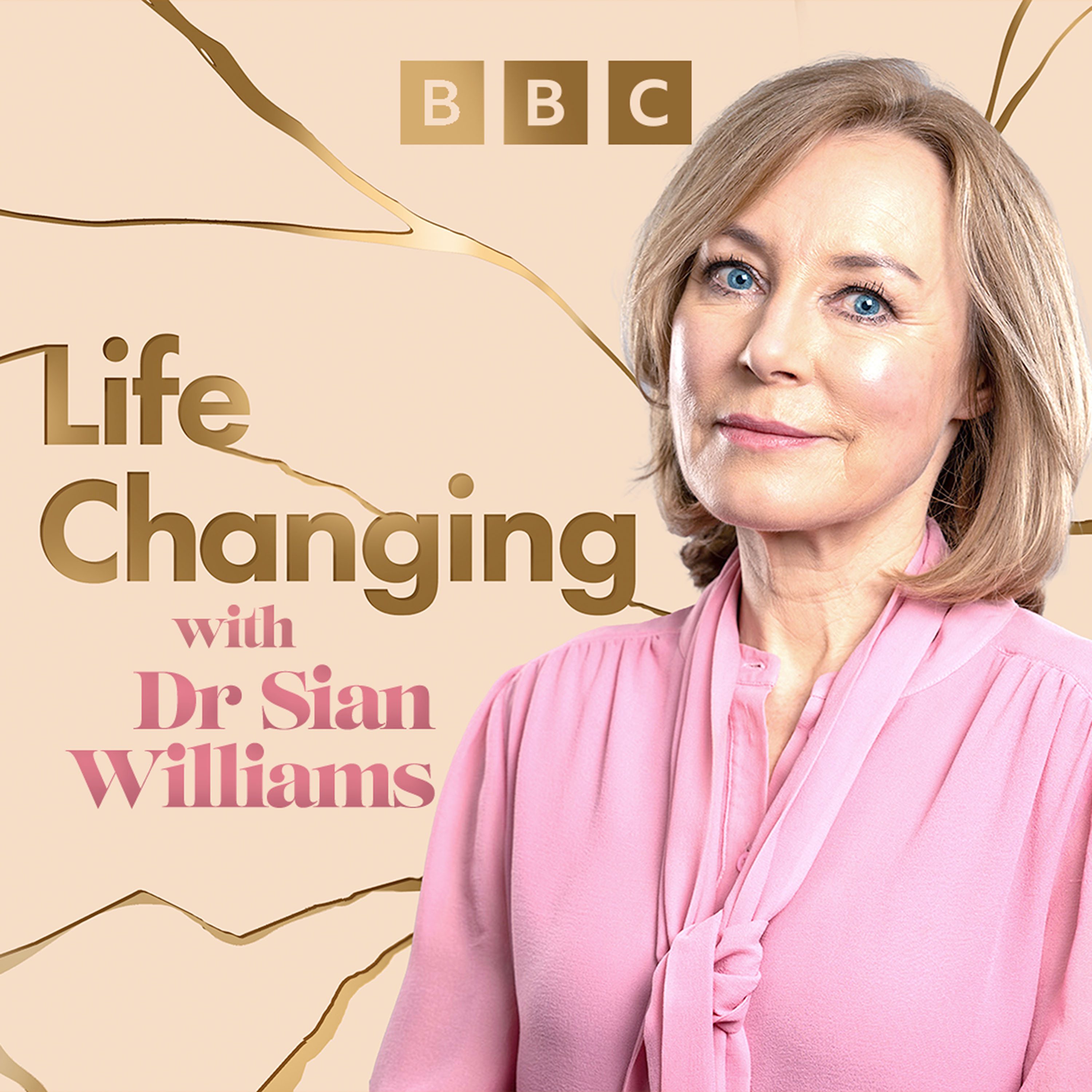
Life Changing
BBC Radio 4
Tech Life
BBC World Service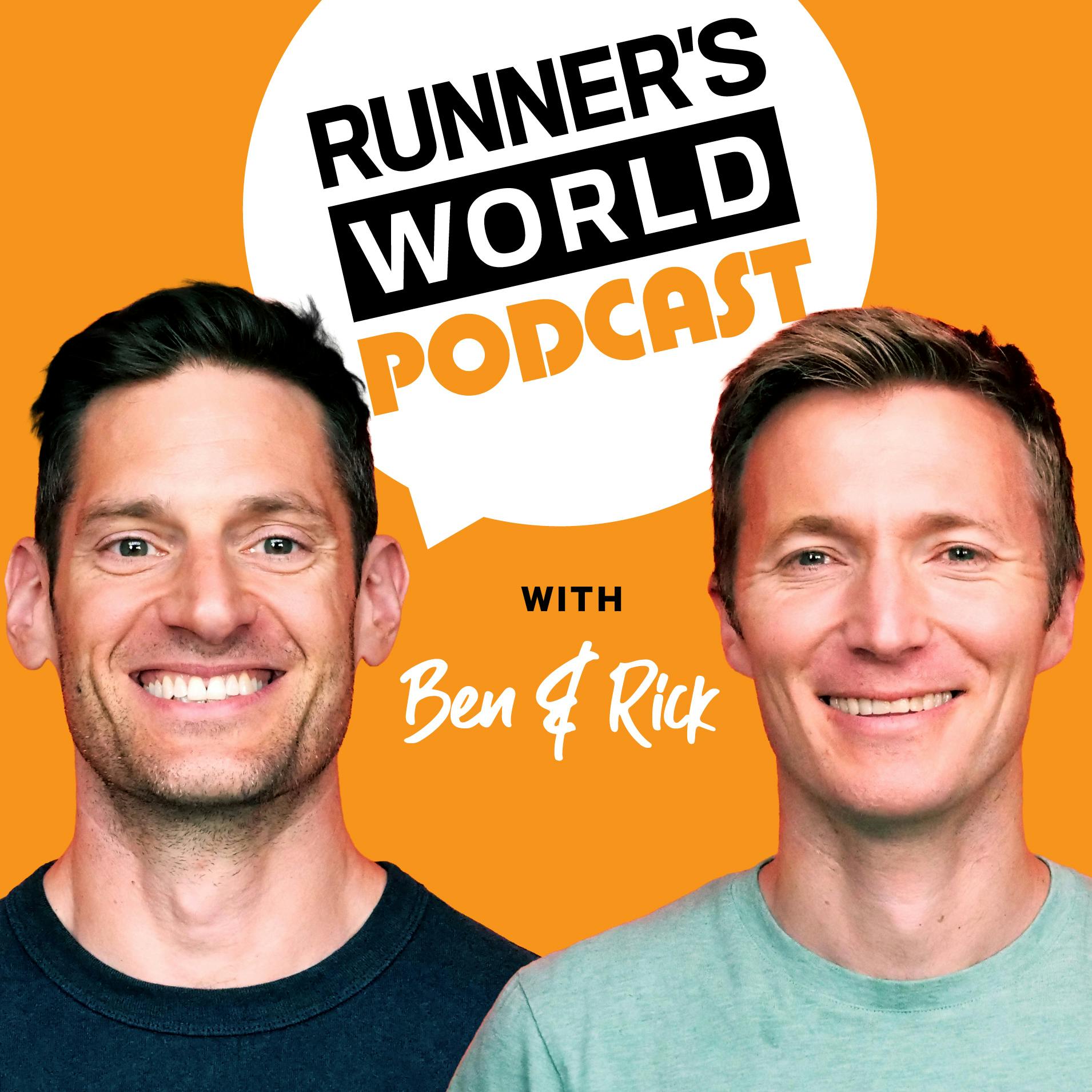
Runner's World Podcast
Runner's World UK
Buzzcast
Buzzsprout
Newscast
BBC News
Understand
BBC Radio 4
Cyber Hack
BBC World Service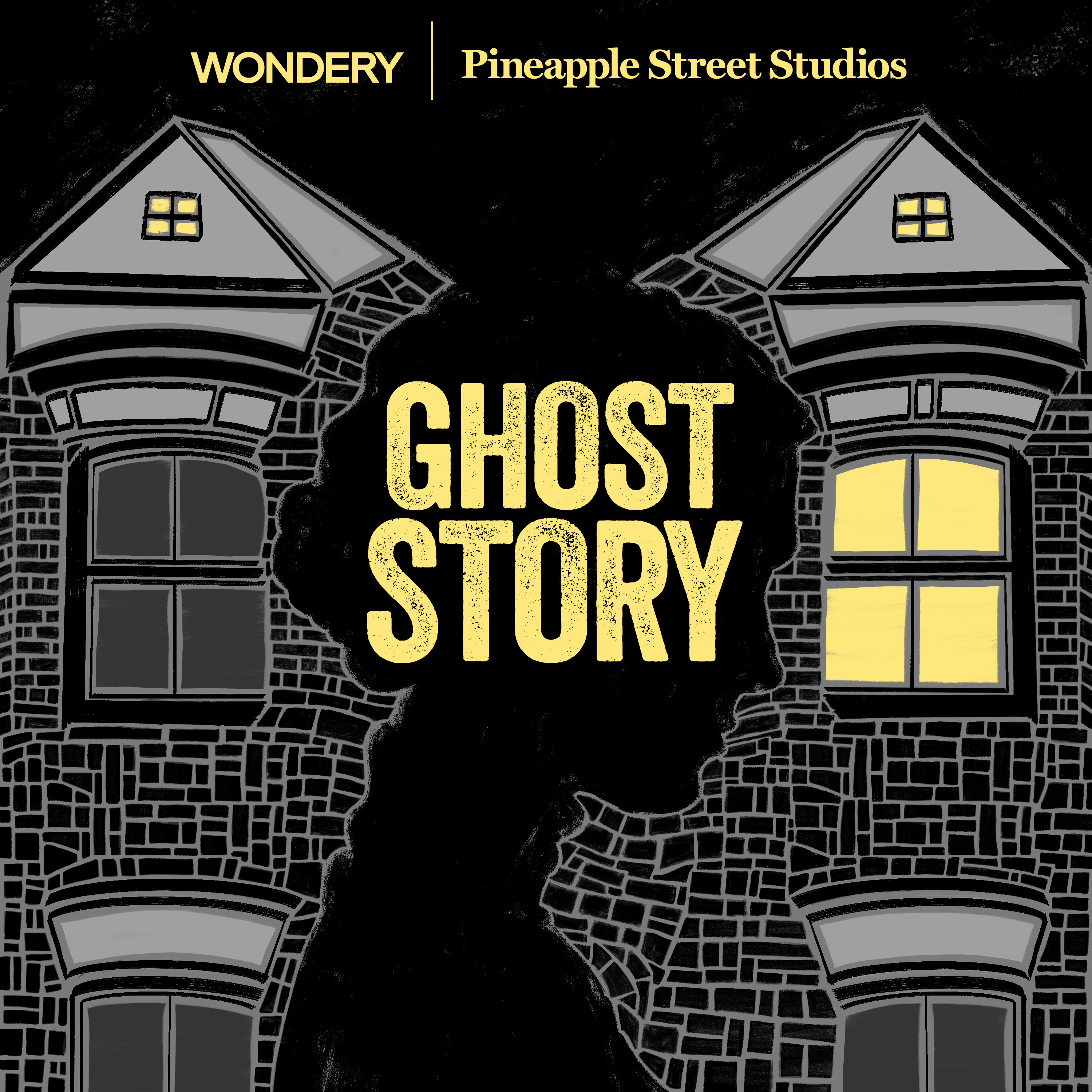
Ghost Story
Wondery | Pineapple Street StudiosDiz Runs Radio: Running, Life, & Everything In Between
Join Denny Krahe, AKA Diz, as he talks with a variety of runners about running, life, and everything in between.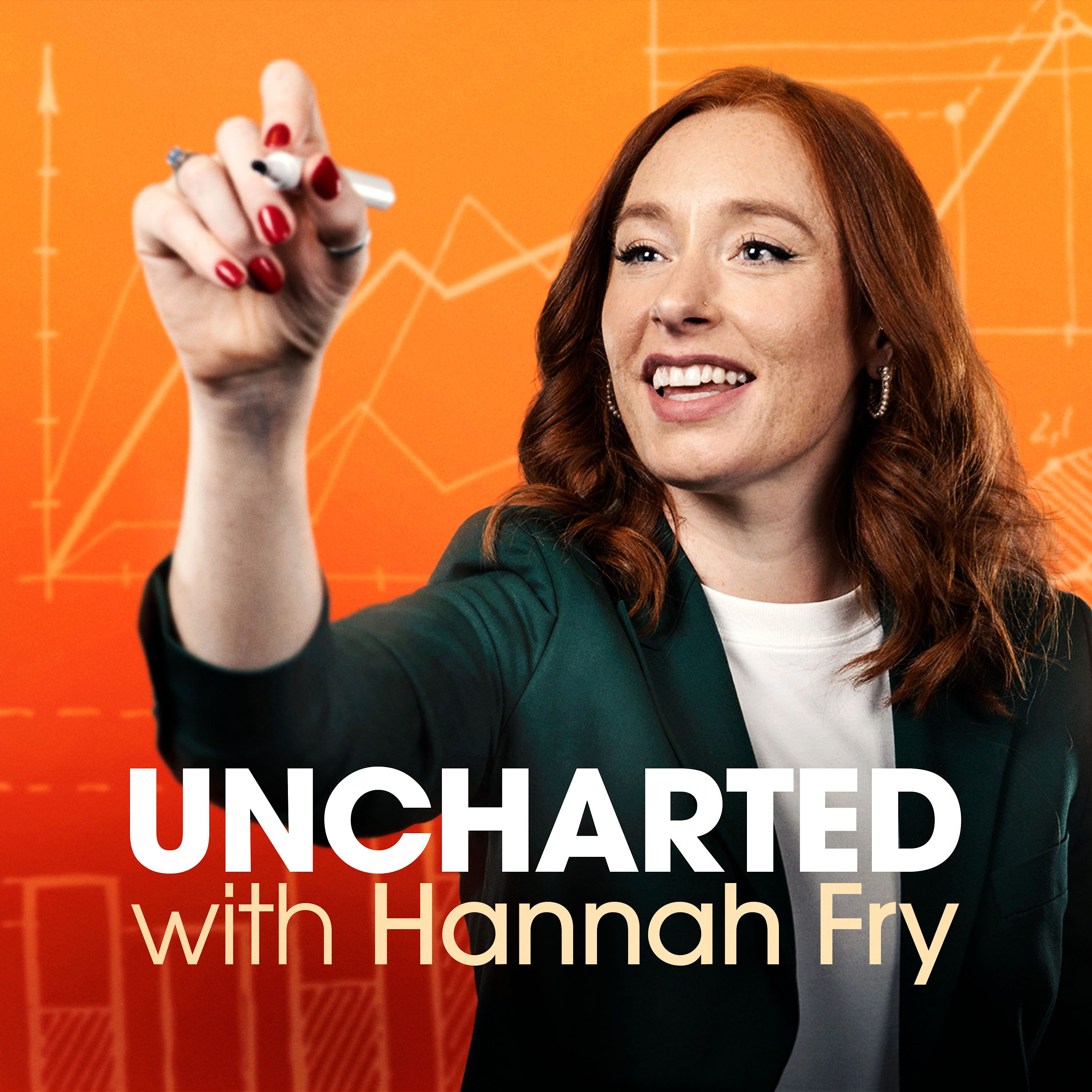
Uncharted with Hannah Fry
BBC Radio 4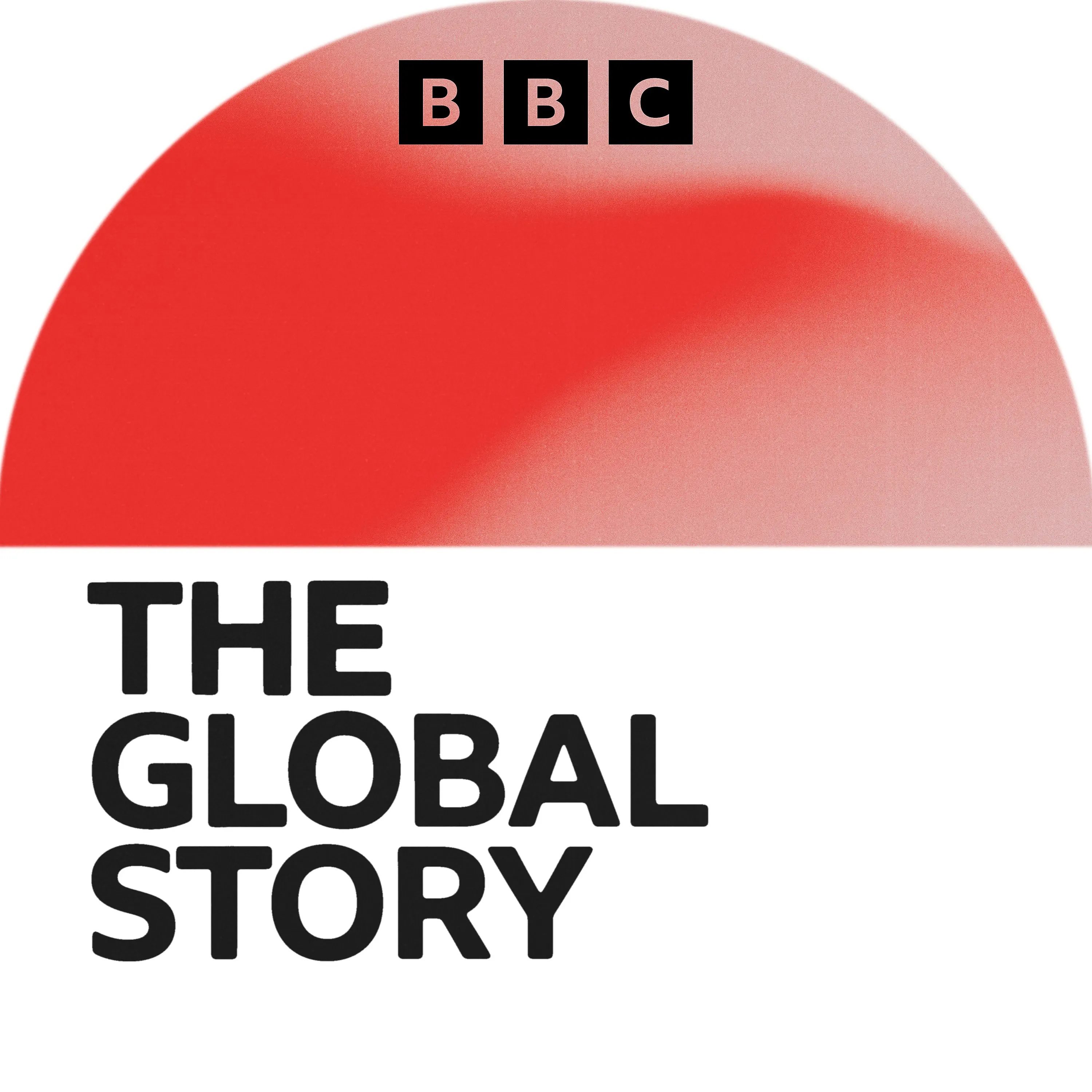
The Global Story
BBC World Service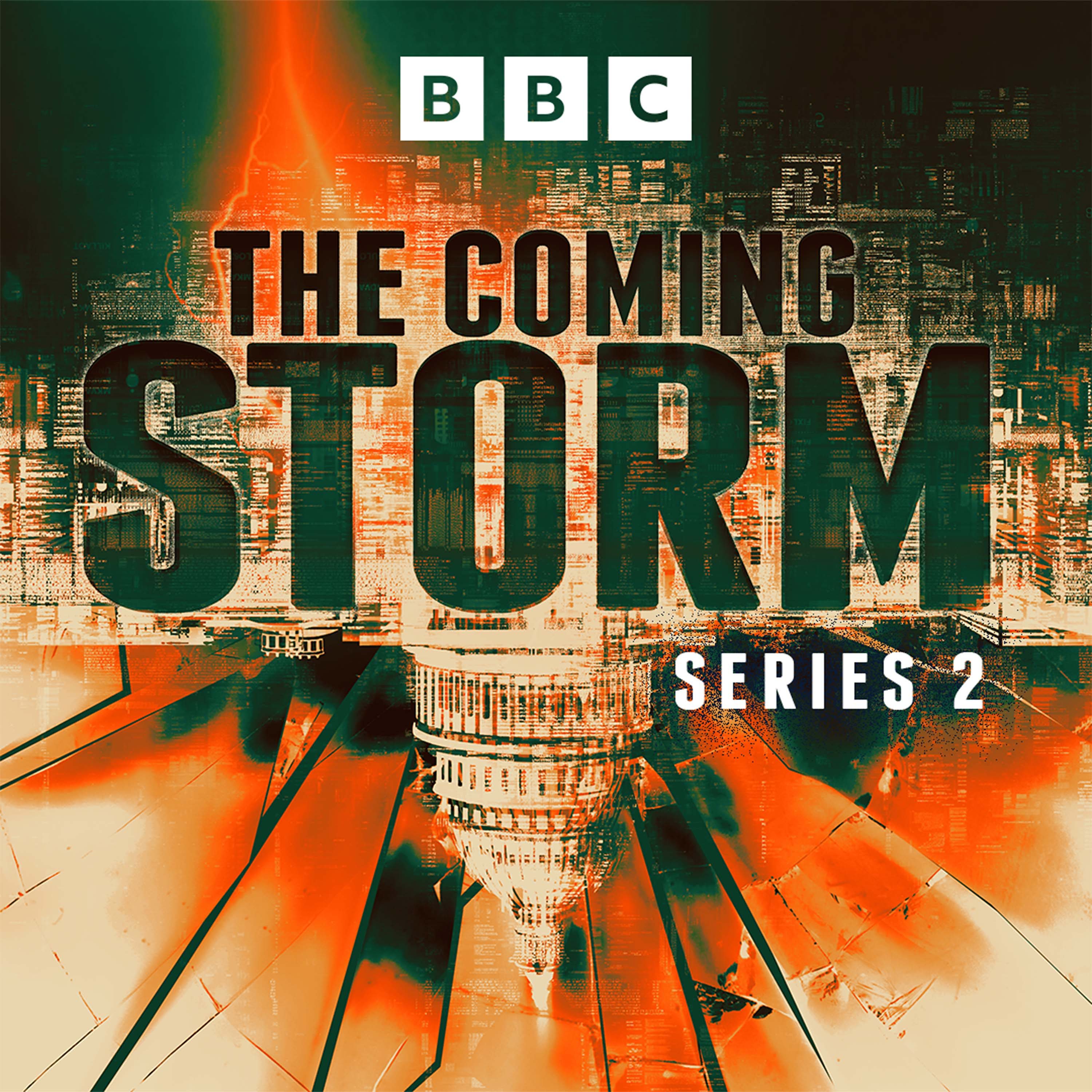
The Coming Storm
BBC Radio 4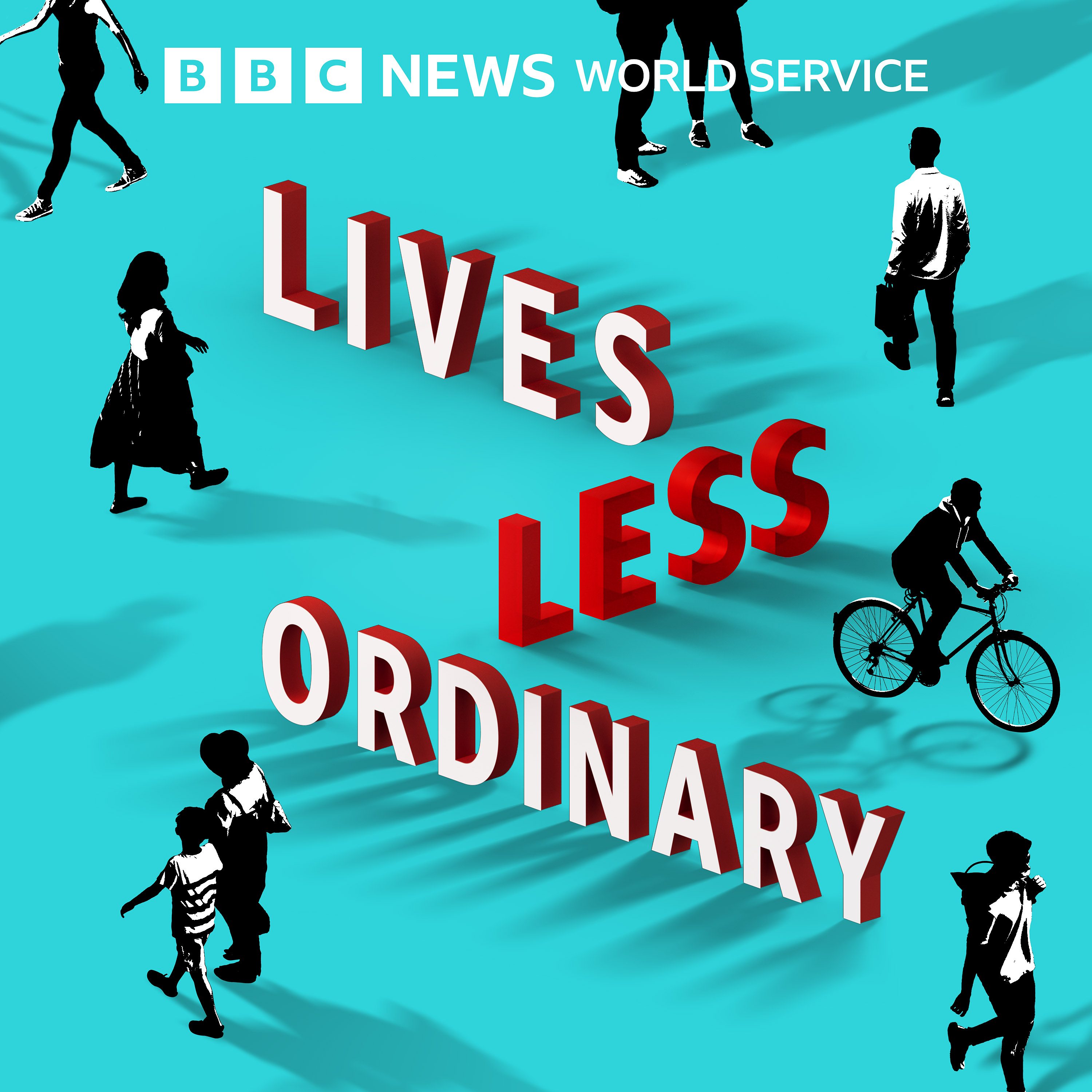
Lives Less Ordinary
BBC World Service
Do Epic Shit Today Podcast
Hannah Mulhern
The Rest Is History
Goalhanger
